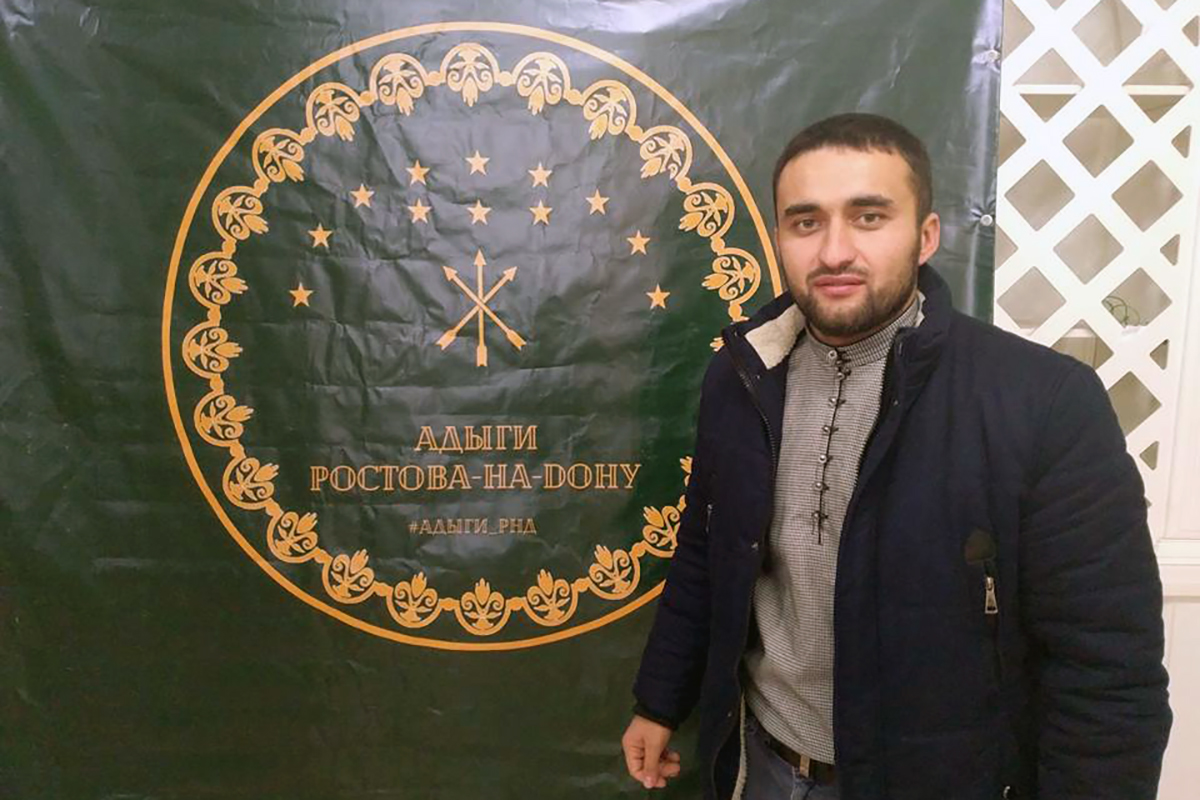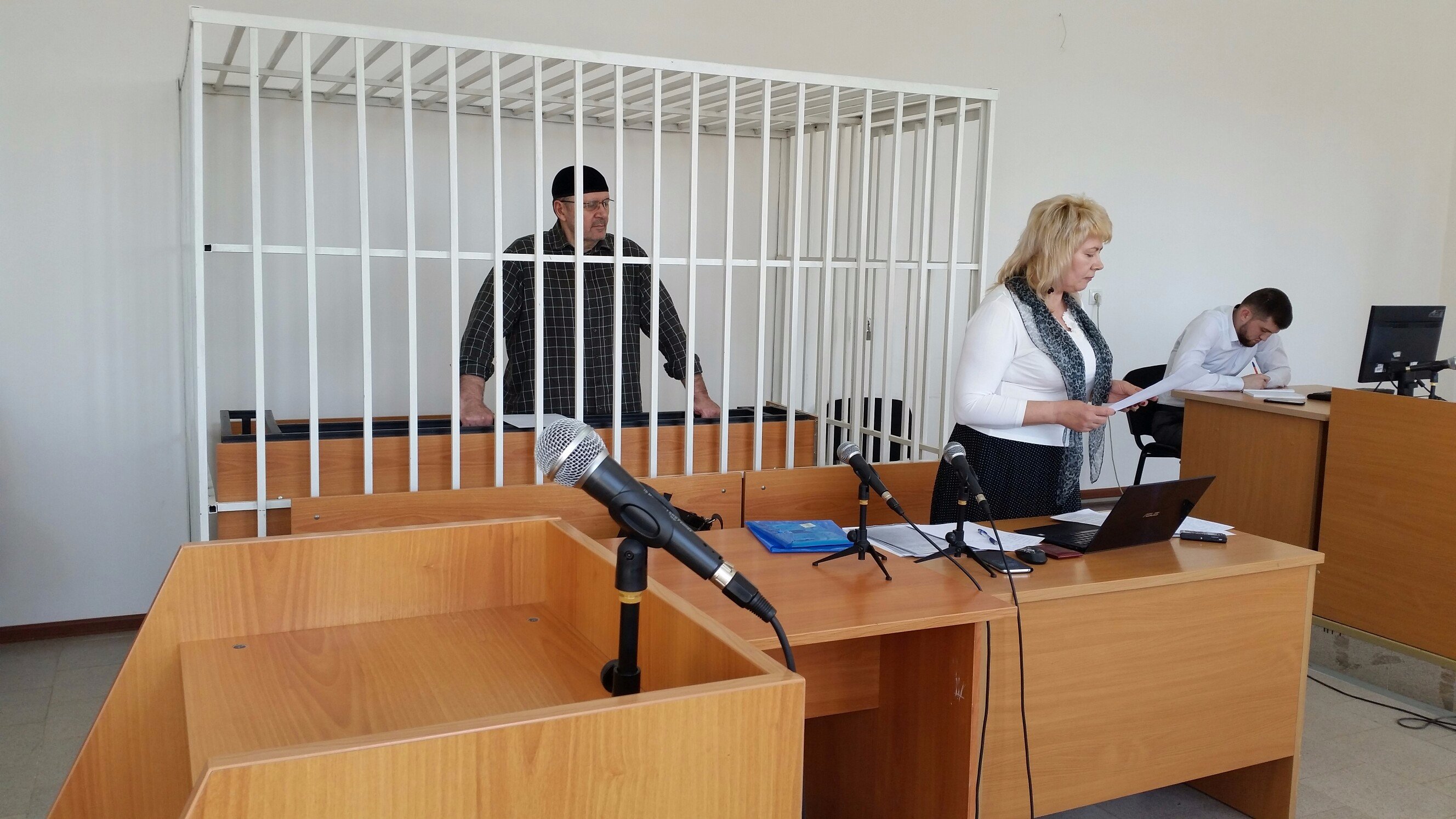
The Supreme Court of the Russian Republic of Kabardino-Balkaria has released Circassian activist Martin Kochesoko into house arrest, satisfying an application by his defence team.
Kochesoko, the leader of Circassian youth group Khabze, was arrested on the 7 June on cannabis possession charges. The day after his detention, the offices of Khabze were raided by police and all their computers seized.
Kochesoko and his lawyers insist the charges against him were fabricated by the authorities and that he was forced to confess.
In a statement published on the 24 June by the Human Rights Centre of Kabardino-Balkaria, Kochesoko claimed he was forced to incriminate himself after being threatened by officers from the Centre for Combating Extremism and the Investigation Detention Unit.
According to Kochesoko, an officer from the Investigation Detention Unit threatened to transfer him to ‘the worst prison cell we have where they can do everything they want’ to him and to add more charges against him if he withdrew his testimony.
According to local news site BFM.ru, several procedural violations committed during Kochesoko’s detention and investigation were revealed during the preliminary court hearings.
Human rights activist Valery Khatazhukov told OC Media that Kochesoko’s lawyers would attempt to have the case dropped based on these violations.
‘Kochesoko’s lawyers argue that when the activist was detained and “confessed”, the security forces committed a number of violations of procedural legislation and falsified a criminal case with the help of these violations […] The case is complicated by the fact that Martin confessed immediately after his arrest’, he said.
‘It is in my interest that the truth is established’
On 25 June, a number of senior local officials including the head of the office of the head of Kabardino-Balkaria and the secretary of the republic’s security council met with Kochesoko’s family, local activist Olga Efendieva reported on Facebook.
Efendieva, one of the co-founders of Circassian civil society group Zheegu, said the meeting was held on the initiative of Kazbek Kokov, the head of Kabardino-Balkaria. She said the possibility of changing Kochesoko’s pre-trial restriction measures was discussed.
Efendiyeva quoted Kochesoko’s father and brother as saying that the officials promised ‘to make as much effort as they can to ensure investigation of Kochesoko’s case was impartial and unbiased’.
Before the Supreme Court delivered its decision on 25 June to release Kochesoko to house arrest, he made a plea to be allowed to leave pre-trial detention.
‘I am asking you not to put my life in danger by letting me stay in the Investigation Detention Unit. Please, change the measure of my restriction and I will prove that I am innocent’, he said.
‘I have no intention to hide from the prosecution or in any way obstruct the investigation. It is in my interest that the truth is established.’
Only a ‘tactical victory’
Aslan Beshto, the chairman of the public organisation the Congress of the Kabardian People told OC Media that ‘common sense prevailed’.
He said that security agencies of Kabardino-Balkaria had known from ‘the very beginning’ that the charges against Kochesoko were ‘falsified’.
‘A large role was also played by the support of Senator Arsen Kanokov, who not only openly expressed his position in social networks but also paid for the services of lawyers. In my memory, this is the only case of [such] an intercession at this level’, he said.
Kanokov, a senator for Kabardino-Balkaria in the Russian Federation Council and a former head of the republic, promised on Facebook on 16 June to strive for an unbiased investigation into Kochesoko’s case.
Beshto added that Kochesoko’s transfer to house arrest was only as a ‘tactical victory’.
‘Martin and his lawyers have yet to seriously contend in court. After all, the ones who organised this provocation with drugs will try to defend the “honour of the uniform” and will continue to insist on Kochesoko’s guilt. Otherwise, the security forces themselves may be on the dock’, he said.
Kochesoko’s lawyers declined to comment for ‘tactical reasons’.
A ‘victory of public opinion’
Olga Efendiyeva from Circassian group Zheegu told OC Media that the activists’ defence of Kochesoko played a major role in softening the court’s position.
‘Almost all the Circassian NGOs of Russia expressed outrage at the arbitrariness of the security forces. It is difficult to overestimate the professionalism of the lawyers defending Martin’s interests in court’, she said.
Support for Kochesoko also came from abroad. On 21 June, the Federation of Circassian Public Organisations held a rally on Istanbul’s Taksim Square demanding his immediate release.

Human rights activist Valery Khatazhukov told OC Media that the court’s position should be considered in the context of the victory of public opinion in the cases of Meduza journalist Ivan Golunov and rights group Memorial’s Chechen head Oyub Titiyev.
Golunov was released on 11 June, 4 days after being arrested in Moscow on drug charges and following protests in the capital. Tityev was released on parole on 21 June after serving one and a half years in prison on drugs charges.

[Read more: Chechen rights activist Titiyev granted parole]
‘Anything could change at any moment’
Khatazhukov said that the methods used by the security forces to discredit public figures and journalists had turned against Russia’s law enforcement system and cast a shadow over the country’s leadership.
He said it was likely that the government felt the need to ‘save face’ and therefore ordered such ‘exaggerated’ cases to be dropped.
‘The command to stop the “exaggerated” criminal cases was given “from above” and I am inclined to view the change in the preventive measure for Martin Kochesoko as a positive symptom. Now when he is at home, the investigation will be unable to put pressure on him and torture out the needed testimonies’, he said.
However, Khatazhukov said the outcome of Kochesoko’s case was far from decided.
‘The investigation … continues. Anything could change at any moment’, he said. ‘For example, the court may satisfy the protests of the prosecutor and return Kochesoko to custody.’
According to him, ‘in the very best case, the case may be stopped because of insufficient evidence or because of the numerous violations committed by the security forces during the detention’.
According to a human rights activist who was present in court throughout all three sessions, Kochesokov’s lawyers demanded that the security officials and witnesses who participated in Kochesoko’s arrest take a polygraph test, and that Kochesoko was also ready to go undergo the procedure.




 1 July 2019
1 July 2019


